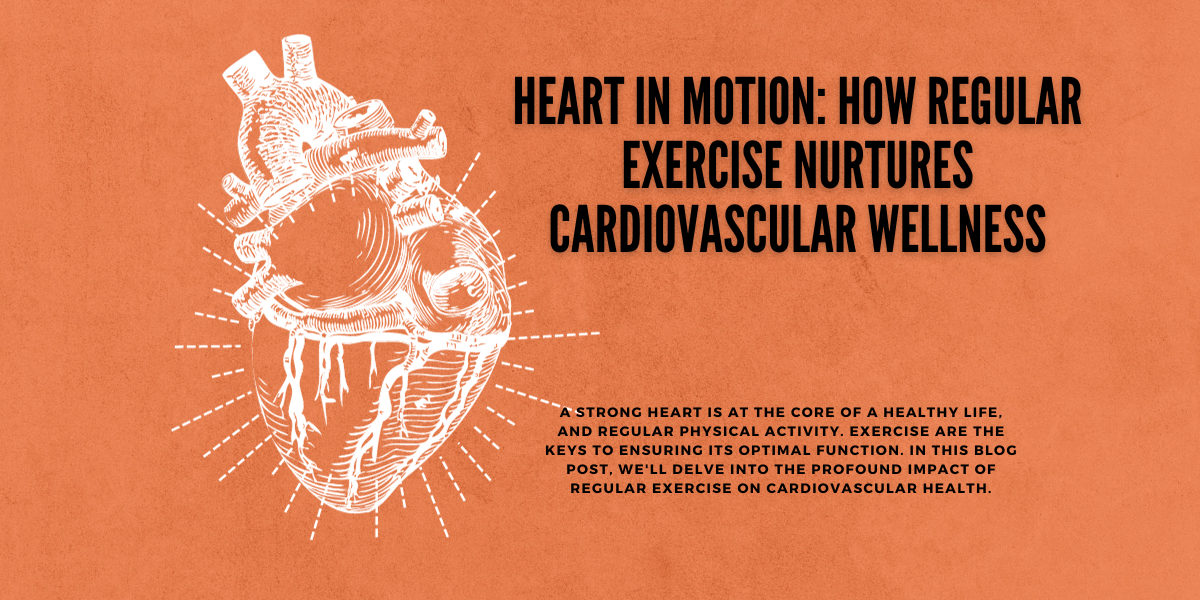Heart in Motion: How Regular Exercise Nurtures Cardiovascular Wellness
Exercise Your Way to a Healthy Heart: Understanding the Cardiovascular Benefits of Physical Activity
Unlocking Heart Health: The Transformative Power of Regular Exercise
A strong heart is at the core of a healthy life, and regular physical activity. Exercise are the keys to ensuring its optimal function. In this blog post, we’ll delve into the profound impact of regular exercise on cardiovascular health. From enhancing heart function and regulating blood pressure to balancing cholesterol levels. We’ll explore the intricate ways in which exercise acts as a potent elixir for your heart.
Heart Function and Exercise:
- Cardiac Efficiency: Regular exercise strengthens the heart muscles, improving its ability to pump blood efficiently, ensuring vital oxygen reaches all parts of the body.
- Heart Rate Regulation: Exercise helps maintain a healthy heart rate, reducing the risk of arrhythmias and promoting a steady, rhythmic heartbeat.
- Stroke Volume Enhancement: Physical activity increases the amount of blood pumped with each beat, optimizing the heart’s efficiency and circulation.
Blood Pressure and Exercise:
- Lowering Hypertension: Exercise is a natural vasodilator, relaxing blood vessels and reducing the strain on the heart, effectively lowering high blood pressure.
- Stress Reduction: Physical activity acts as a stress reliever, reducing cortisol levels and subsequently helping maintain healthy blood pressure levels.
Cholesterol and Exercise:
- Balancing Cholesterol: Regular exercise raises HDL (good) cholesterol levels while lowering LDL (bad) cholesterol levels, promoting a heart-healthy lipid profile.
- Preventing Plaque Buildup: Exercise reduces the risk of plaque buildup in arteries, preventing atherosclerosis and enhancing overall cardiovascular health.
Creating a Heart-Healthy Exercise Routine:
- Aerobic Activities: Engage in aerobic exercises like walking, running, swimming, or cycling for at least 150 minutes per week to boost cardiovascular endurance.
- Strength Training: Incorporate resistance training to enhance muscular strength, promoting better overall cardiovascular function.
- Flexibility and Balance: Include stretching and balance exercises to improve flexibility and reduce the risk of falls, indirectly benefiting heart health.
Conclusion: Regular physical activity and exercise are the cornerstones of a robust cardiovascular system. By incorporating a variety of exercises into your routine and staying consistent, you’re not just enhancing your physical fitness. You’re investing in the vitality of your heart. Embrace the power of movement, and let your heart beat stronger, ensuring a healthier, happier you.





